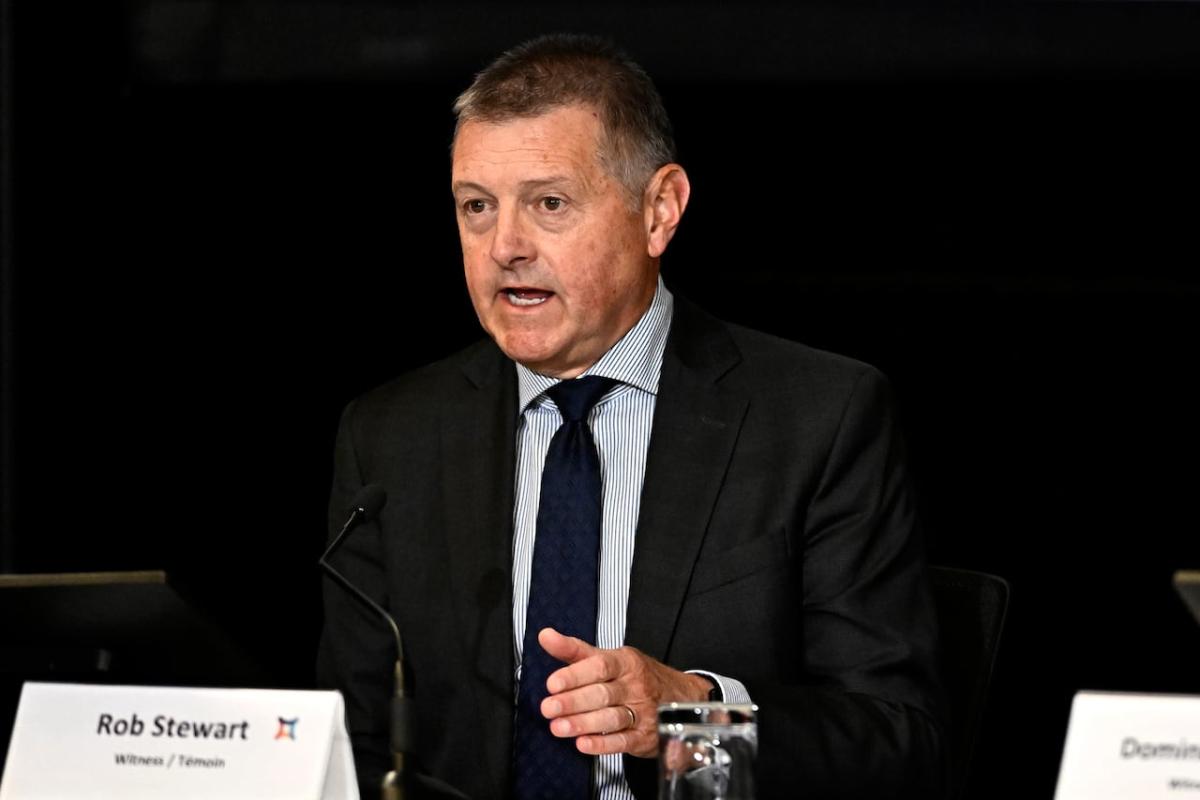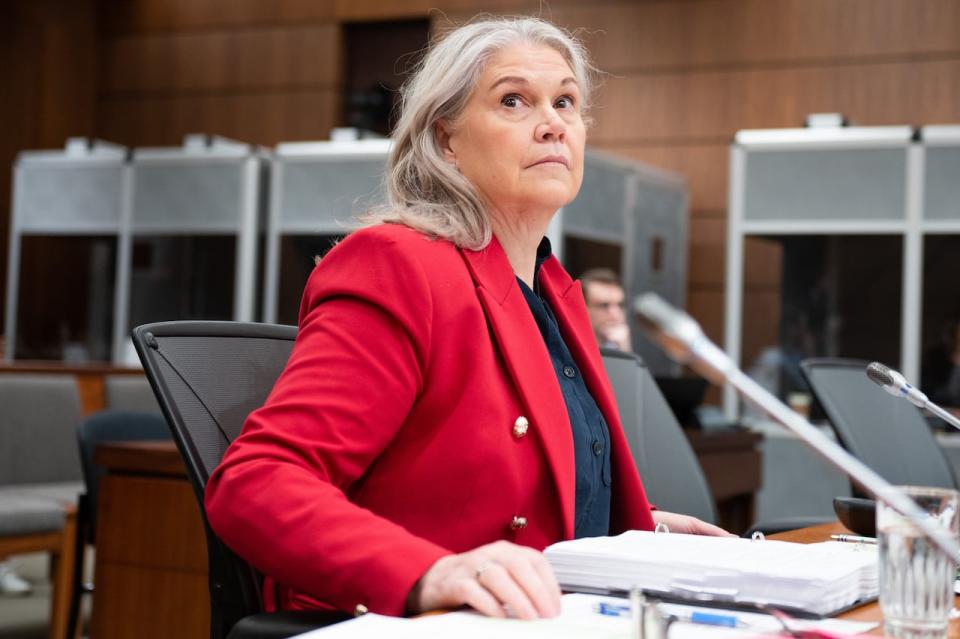


A Canadian Security Intelligence Service (CSIS) warrant application that lingered in then-Public Safety minister Bill Blair’s office for 54 days included a list of people whose communications were at risk of being intercepted if they communicated with the target of the warrant, the foreign interference inquiry was told Tuesday.
Testifying before the inquiry, Rob Stewart, former deputy minister of Public Safety, was asked repeatedly about the process that led to the long delay in Blair approving the warrant.
“Mr. Stewart testified that there were questions and it would have taken CSIS some time to get the minister and his staff comfortable with this particular warrant,” Stewart told commission counsel, according to his witness statement.
“Mr. Stewart surmised that questions would probably have been asked about certain processes related to the execution of the warrant.”
Gib van Ert, lawyer for Conservative MP Michael Chong, asked Stewart whether it would have taken “some time” because of the names on CSIS’s warrant list of individuals whose communications could be intercepted. Stewart replied that it was a general source of concern for ministers’ offices but he could not discuss the specifics of the warrant.
While the target of the warrant has not been named, previous news reports have identified former Ontario MPP Michael Chan. If so, the list of people CSIS thought might communicate with Chan could include people active in federal or provincial politics.
Earlier in the inquiry, CSIS officials testified that it took weeks — much longer than is usual — for Blair to sign the warrant application once it was sent to Zita Astravas, his then-chief of staff. Blair has testified that he signed the application on the day he first saw it.
In his witness statement, Stewart said Blair always read the applications thoroughly and typically wanted to talk to the director of CSIS before he signed them.
Although Astravas is expected to testify that once the pandemic hit, the minister’s office was no longer provided with binders of intelligence, Stewart and former senior assistant deputy minister Dominic Rochon told the inquiry Public Safety continued to produce hard copy binders and send them to the minister’s office.
They told the inquiry that if Blair was in Toronto and something had to be dealt with quickly, it could be printed out at the CSIS office in Toronto and a CSIS official would bring it to the minister to read or sign.

Former national security adviser Jody Thomas is set to testify before the foreign interference inquiry this week. (Spencer Colby/The Canadian Press)
Astravas, who recently was added to the witness list, is to testify on her own Wednesday, following a panel of top officials from the Privy Council, including former national security adviser Jody Thomas.
The foreign interference inquiry, headed by Justice Marie-Josée Hogue, was set up following media reports which accused China of interfering in the 2019 and 2021 federal elections.
In her initial report, made public in May, Hogue found that while it was possible that foreign interference occurred in a small number of ridings, she concluded it did not affect the overall election results.